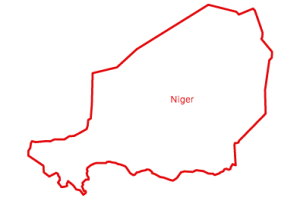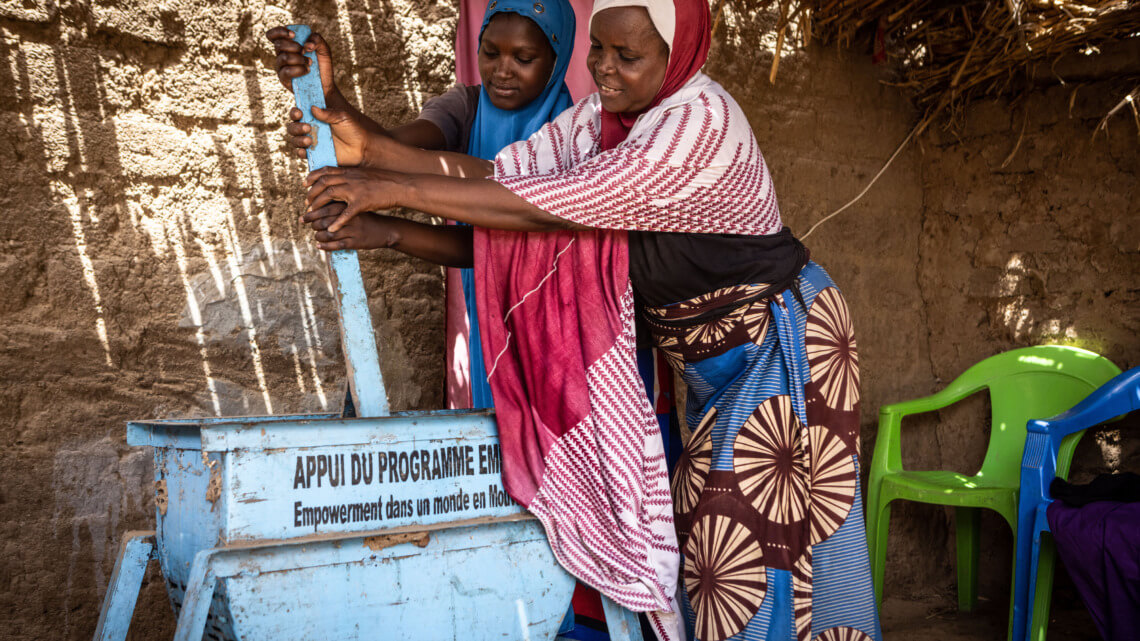
A VOLATILE REGION
The Diffa region in southeastern Niger remains highly volatile, with numerous population displacements due to violence within the country and in neighboring Nigeria.
This situation causes many problems in the care and protection of affected people (applicants for international protection, displaced persons, returnees, and hosts):
- Child protection: children are particularly vulnerable and face many incidents of family separation, abandonment, psychological distress, forced recruitment by armed groups, exploitation and abuse, forced labor, early and forced marriage, and sexual exploitation. Difficulties in registering newborns is also a problem, particularly for internally displaced families.
- Sexual violence based on gender: our analyses reveal cases of marital violence, as well as sexual harassment, occurring most often during the search for resources (water, wood, etc.) around the villages.
- Social cohesion: Tensions between the different communities are not uncommon due to the deterioration of social cohesion and societal and community structures.
- Economic insecurity: The Diffa region is affected by significant economic insecurity among communities as a result of clashes between armed groups, population displacements and the closure of the borders with Nigeria (limiting trade). The pattern of cereal and fodder deficits also has led to cyclical food insecurity.
HOW TO IMPROVE PROTECTION AND SOCIO-ECONOMIC INTEGRATION?
Caritas International and its partners are implementing various actions to achieve lasting positive change:
Child protection, reduction of gender-based violence, strengthening of social cohesion, and conflict prevention.
Examples of planned activities:
- Training of stakeholders on policies against exploitation, sexual abuse, and safeguarding.
- Raising awareness on child protection and the prevention of gender-based violence.
- Raising awareness on the peaceful management of conflicts between different community groups, through sports and cultural activities.
- Identification and psychosocial support for victims of abuse and violence.
- Coverage of the victims’ medical expenses.
- Distribution of hygiene and protection kits to victims.
Legal support
Examples of planned activities:
- Legal support for displaced persons or returnees, victims of abuse, and violence.
- Advocacy for the protection of target groups.
Socio-economic reintegration
Examples of planned activities:
- Cash transfer for households that have been displaced, are seeking international protection, or are returnees (as well as for the most vulnerable households in host communities) to meet their basic needs and to facilitate their socio-economic reintegration.
- Support for the creation and management of savings and credit groups.
- Vocational training for youth, forming youth associations, and support of these associations with work kits.
FOR AND WITH DISPLACED PERSONS AND HOST COMMUNITIES
We work for and with displaced persons, but also with host communities:
- 17,700 people will benefit from socio-economic and socio-professional reintegration (with priority given to families hosting abandoned children, orphans or living with HIV, young girls, and women victims of SGBV).
- 5,000 households will benefit from awareness-raising on children’s rights and child protection.
- 3,000 beneficiaries (abandoned children, victims of rape and sexual abuse, women, and girls) will receive legal support.
The population as a whole also benefits from the project: Caritas organizes awareness campaigns on different themes related to protection, such as children’s rights, sexual and gender-based violence, and access to justice.











